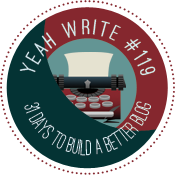My mom always prefaced the story with,”You were such a sweet little Catholic schoolgirl,” as if that meant that I should always and forever be above such things. That fact was the crux of the story, for her. I had, in my defense, only just started kindergarten at Sacred Heart Elementary. And I had absolutely no idea what I was doing.
The way she told it, it was dinnertime on a weeknight. I guess that made it a school night. She was in the kitchen preparing dinner. I was outside playing with a neighbor boy. Commuters made their way home from work, passing by our house and slowing down for those three — yes, three — speed bumps in the road by our apartment building.
She turned away from the stove for a minute, or maybe she looked up from setting the table, and she saw us. We were lying on the grass, atop a hill behind our house, immediately next to the street. Cars were passing inches from us. I was underneath him, he was on top of me. We both had our pants down. Undies too.
My mom dropped her spoon — or her napkins — and came running outside. This, I remember. “Chris!” she yelled. It had that particular ring to it, that tone that can only be articulated by one’s mother, that pitch that can only be reached in anger. In seconds, the neighbor boy was up and off of me, our pants were pulled up, and our deed was forever set in stone.
My mom had a dark sense of humor, and she found this event to be really funny. She liked to tell the story, and she did tell it, over and over again until its telling became more real than the real thing. I don’t remember that day on the hill, only my mom’s rendition of it. But I’ll tell you this: I do remember that kid next door. His name was Matthew, and he was a lot of fun.








